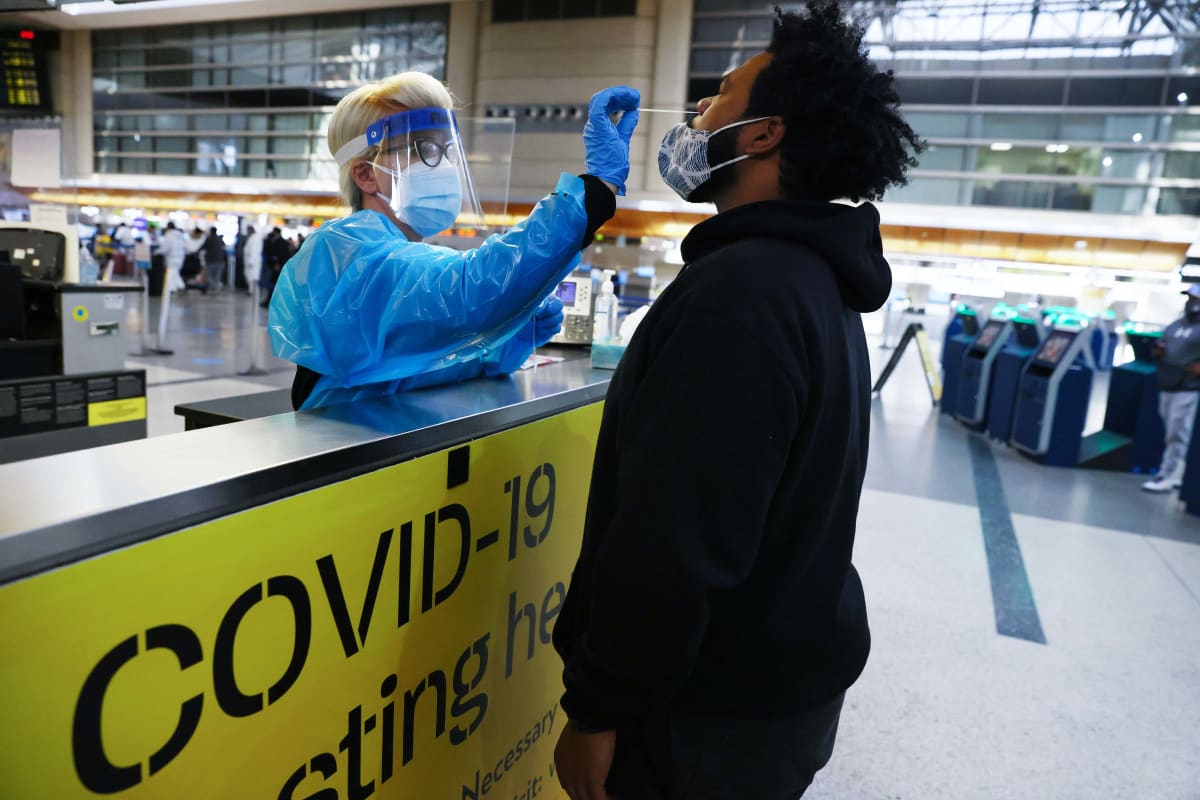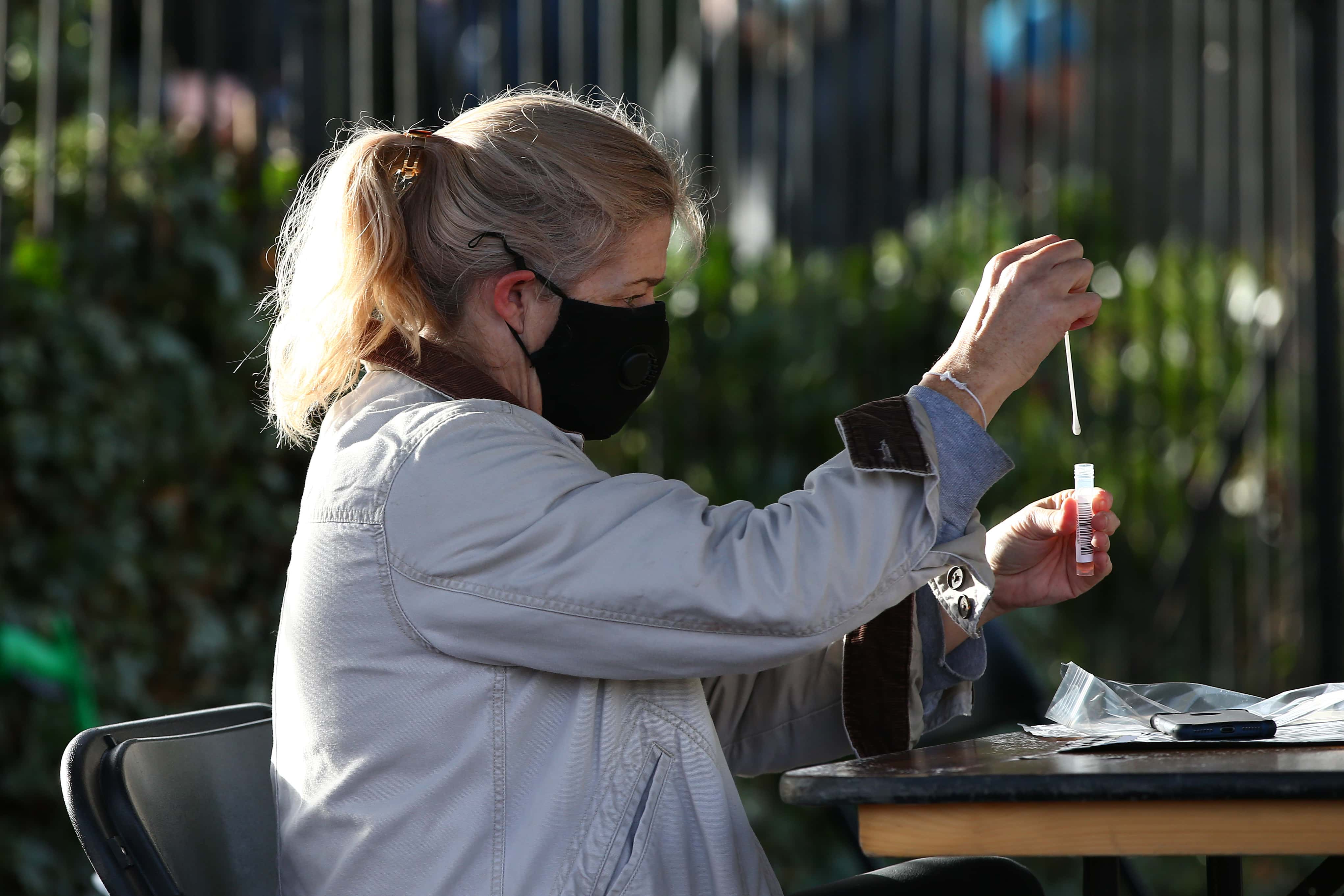Can 'Nepal variant' reduce Covid-19 vaccine efficacy? New mutation detected in US has experts concerned

A new Covid-19 variant is rapidly spreading through the world and has some experts worried. Officially called Delta+K417N, the variant is a mix of the 'Indian' and 'South African' strains of Covid and therefore more transmissible and immune to vaccines. While it is being dubbed the 'Nepal' variant, Nepal and the WHO have so far denied the origin of the strain from the country.
Despite a rapid uptick in vaccination, the US and the world remain wary of newer strains of the virus. Since April, a new deadly strain has been rampaging throughout India, leading to another series of lockdowns in the country. Elsewhere too, cases have massively increased leading to restrictions and in some cases travel bans. Some wonder if vaccinations can lead to 'enhanced diseases', as emails from Dr Anthony Fauci show.
RELATED ARTICLES
It's unclear where exactly the new strain originated, but it appears to have come from the many climbers who chose to scale Mount Everest, leading to a Covid outbreak at the base camp earlier this year. So far, the variant has been detected in Japan, Nepal, India, Portugal, UK, and the US. Here's everything you need to know.

How did it spread?
Firstly, you should know that strains are no longer named after their country of origin. The WHO has now moved to use Greek alphabets, such as Delta for the 'Indian' variant. So far, the new strain doesn't appear to have enough known cases to give it a new name, so it is simply being referred to as Delta+K417N, i.e. a mutation of the Delta variant. So far, only a handful of cases have been recorded, all linked back to climbers in Nepal.
The country is also battling a surge in infections, linked to the massive outbreak in neighboring India. Despite a massive rise in cases, Nepal provided permits to 300 climbers, leading to an outbreak at the base camp. That has been linked to lax enforcement of rules, with reports of daily evacuations of sick people. It is believed that the climbers may have caught the virus, but not shown any symptoms due to their good health. "No one climbs unless they are healthy and have good lungs so they're healthy, strong, will get infect asymptomatically and spread it," Dr Ali Mokdad, an epidemiologist at the University of Washington told The Daily Mail. It is believed that these climbers then spread the virus to the countries they are from.
13 cases were first spotted in Japan, all from travelers returning from Nepal. It has also been spotted in Portugal. The UK reported its first case of the variant on Thursday June 3. So far, the WHO has said it "is not aware of any new variant of SARS-CoV-2 being detected in Nepal". A Nepalese government official told an Indian publication, "The report in some international media regarding the detection of the Nepal variant of coronavirus is not true."
What should I know about the strain?
So far, there are only a handful of cases reported, but it's worth being cautious. Since it is based on the Delta variant, Delta+K417N is expected to be widely transmissible, especially amongst unvaccinated people. India is still battling a massive outbreak, with hospitalization and deaths at an alarmingly high rate. A vast majority of those are linked to unvaccinated people. So if you haven't got your vaccine yet, it is advisable you do.
The Delta variant is not just more transmissible, but also more deadly, especially amongst the younger population. An Indian doctor noted, "We’re seeing a higher number of young adults in this wave —60%- 70% are younger than 60, of whom more than half are below 45." It is likely that this variant will exhibit similar features. But will vaccination alone be enough? Some experts worry that it won't since the variant also has a mutation from the 'South African' or Beta variant.

The Beta variant of COVID is known to be evasive to vaccines, which has prompted a slower rollout in the country. "It could be one of the most transmissible variants we know about plus one of most vaccine evasive we know about. It has the potential to cause real harm to the unvaccinated population," Dr Peter Chin-Hong of the University of California noted. Dr Jeff Barrett, director of the Covid-19 Genomics Initiative at the Wellcome Sanger Institute also noted the link between this new strain and the Beta variant.
"This mutation is present in B.1.351 / Beta, and is believed to be part of why that variant is less well neutralized by vaccines," he said, according to ITV. He added, "Because of this possibility, and because Delta appears more transmissible than Beta, scientists are monitoring it carefully." But this news should be taken with some caution for now. So far no major health organization has recognized this trait of the Delta+K417N variant, it is merely speculation by experts.
That said, data from several nations like Israel and the US show that vaccination does lead to a drop in cases. Until the WHO provides further information about Delta+K417N, it is best you take precautions such as mask-wearing and social distancing and getting vaccinated at the earliest.










